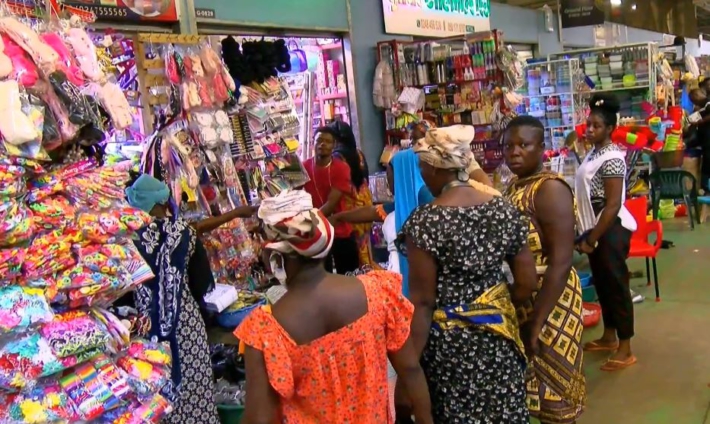
Audio By Carbonatix
Data from the Bank of Ghana indicates a downward trajectory of both consumer and business confidence in the general economy since the end of 2020.
Both the Consumer and Business Confidence Indices have consistently been below the 100 mark since January 2021.
The consumer confidence index has averaged 86.13 during this period while the business confidence index averaged 88.19 in the same period.
Meanwhile, the confidence indices for consumers and businesses dropped to all-time lows of 73.9 and 72.6 respectively in October 2022. In December 2022, the indices improved to 79.2 for consumer confidence and 75.7 for business confidence.
According to the Bank of Ghana, consumer confidence improved on the back of the reductions in ex-pump petroleum prices and transportation fares in December 2022.
Business confidence also turned positive due to achievement of short-term targets and confidence about company and industry prospects, following the appreciation of the local currency during the month.
The confidence indices
Consumer confidence index (CCI) measures how optimistic or pessimistic consumers are regarding their expected financial situation.
The CCI is based on the premise that if consumers are optimistic, they will spend more and stimulate the economy but if they are pessimistic then their spending patterns could lead to an economic slowdown or recession.
According to the Organisation for Economic Co-operation and Development (OECD), an indicator above 100 signals a boost in the consumers’ confidence towards the future economic situation, as a consequence of which they are less prone to save, and more inclined to spend on major purchases.
Values below 100 indicate a pessimistic attitude towards future developments in the economy, possibly resulting in a tendency to save more and consume less.
The business confidence index provides information on future developments, based upon opinion surveys on developments in production, orders and stocks of finished goods in the industry sector.
It can be used to monitor output growth and to anticipate turning points in economic activity.
Ghana’s Real Composite Index of Economic Activity (CIEA)
The annual growth of Bank of Ghana’s Real CIEA also shows a dip to an all-time low in November 2022 of -6.2%. This is indicative of a worsening outlook on domestic economic activity.
This indicator has moved from 39.4% in April 2021 and slid continuously to 10.2% in November 2021 and by November 2022 moved to -6.2%.
It is worth mentioning that the second half of the 2022 economic year was characterized by high fuel prices, high inflation and excessive depreciation of the Ghanaian cedi and this may explain why economic indicators showed negative growth especially during this period.
Read also:
Latest Stories
-
Kenyasi assault case: Woman handed 15-month jail term for injuring child
1 hour -
Mahama’s trust well placed, I remain focused on fixing education – Haruna Iddrisu
1 hour -
IGP Yohuno promotes 13 senior officers in recognition of exemplary service
1 hour -
Miss Health Organisation unveils new Miss Health Africa and Ghana queens
2 hours -
Andy Dosty set to headline inaugural Ghana Independence Day celebrations in Europe
2 hours -
GoldBod rejects IMF claims of $214m losses under gold-for-reserves programme
2 hours -
Some MMDCEs reject uniform 24-Hour Economy Market model, seek flexible options
3 hours -
Government to reform cultural, creative sector policies
3 hours -
Illegal farming ravages Chai River forest reserve
3 hours -
Christmas should inspire unity and national renewal – Prof Opoku-Agyemang
3 hours -
Ashanti Region: NADMO prioritises preventive measures to reduce road carnage
3 hours -
Mahama pledges reset, growth and jobs for all Ghanaians in Christmas message
3 hours -
13 inmates at Nsawam Prison granted bail under the Justice For All Programme
3 hours -
We invited a man into our home at Christmas and he stayed with us for 45 years
3 hours -
From uncertainty to clarity: Ghana draws the line on digital assets
3 hours

